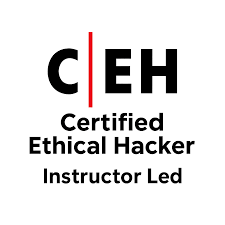Palo Alto Training – Learn Palo Alto Firewalls in 2025

Strengthening Business Resilience through ISO 27001 Implementation In today’s volatile digital landscape, ensuring a robust security framework is paramount for maintaining operational continuity and competitive advantage. The adoption of ISO 27001 has emerged as a critical factor for organizations aiming to enhance information security and build a resilient business model. By implementing a comprehensive Information […]
In today’s volatile digital landscape, ensuring a robust security framework is paramount for maintaining operational continuity and competitive advantage. The adoption of ISO 27001 has emerged as a critical factor for organizations aiming to enhance information security and build a resilient business model. By implementing a comprehensive Information Security Management System (ISMS), companies can effectively mitigate risks, secure sensitive data, and foster a culture of continuous improvement.
The ISO 27001 standard, recognized worldwide, provides a systematic approach to managing sensitive information. It encompasses a range of best practices, including rigorous risk assessments, tailored control implementations, detailed documentation, and continuous monitoring. This standard is not only about meeting compliance requirements but also about adopting a proactive stance towards emerging threats, ensuring that businesses are well-prepared to counter cyberattacks and data breaches.
A key element in achieving ISO 27001 certification is developing a robust security framework. Organizations must start with a thorough gap analysis to identify vulnerabilities and then carry out a comprehensive risk assessment to evaluate potential threats such as cyberattacks, insider risks, and system failures. Implementing effective controls as outlined in ISO/IEC Annex A is essential to create a layered defense strategy.
In addition, continuous employee training and awareness programs play a vital role. These initiatives help cultivate a security-conscious culture, significantly reducing the likelihood of human errors that can lead to breaches. Regular internal audits and management reviews further ensure that the implemented measures remain effective and compliant with evolving standards.
Adopting ISO 27001 not only bolsters security but also enhances overall business resilience. By minimizing the risk of data breaches, companies can avoid costly disruptions and legal repercussions, thereby boosting customer trust and establishing a strong market reputation. Organizations that invest in robust ISO 27001 training and certification often report improved operational efficiency and a clear competitive edge.
Numerous organizations have successfully transformed their security posture by implementing ISO 27001. For example, a mid-sized enterprise reduced its security incidents dramatically after certification, while a large financial institution enhanced its compliance with global regulations such as GDPR and HIPAA. These real-world examples underscore the tangible benefits of the standard, from reduced operational risks to improved stakeholder confidence.
To fully leverage the benefits of ISO 27001, organizations should adopt several best practices. Ensure that all security measures are well-documented and periodically reviewed. Invest in regular training sessions for employees to keep them abreast of the latest threats and response strategies. Implement automated monitoring systems to gain real-time insights into potential vulnerabilities and breaches.
For organizations aiming to further extend their security measures, integrating ISO 27001 into existing business processes is crucial. This involves aligning the security framework with overall corporate strategy and ensuring that every department understands and supports the initiative. Regular cross-functional meetings and continuous improvement programs help embed security as a core value across the enterprise.
Moreover, leveraging advanced analytics and automation tools can streamline the monitoring and enforcement of security policies, providing actionable insights for rapid threat response. The integration of such technologies not only enhances cybersecurity but also optimizes resource allocation and overall operational efficiency.
In a rapidly evolving threat landscape, staying ahead requires a commitment to continuous learning and adaptation. Organizations must remain vigilant by keeping abreast of the latest trends and threats, updating security protocols regularly, and investing in innovative technologies. This forward-thinking approach ensures that your organization is always prepared to counter emerging cyber threats and maintain robust data protection.
Partnering with external security experts for periodic assessments can provide an unbiased review of your security posture and offer recommendations for further improvement, ensuring long-term sustainability.
The journey toward ISO 27001 certification is both challenging and rewarding. It demands strategic planning, dedicated resources, and an ongoing commitment to improvement. However, the long-term benefits—enhanced business resilience, reduced risk, and increased customer trust—make it a strategic investment for any forward-thinking organization. Embracing ISO 27001 is not just about compliance; it is about building a resilient, future-proof organization capable of thriving in today’s competitive digital marketplace.
With the right approach and expert guidance, achieving robust information security is well within reach, positioning your business for sustained growth and success.
Get certified with industry-leading cybersecurity certifications from EC-Council, PECB, Palo Alto Networks, and more.

Learn from world-class instructors Collaborate with top professionals Advanced training...

The CEH is the world's leading cybersecurity certification, recognized by...

Onsite training course Led by an instructor Interactive sessions

Asynchronous, self-study environment Video-streaming format Flexible learning schedule
Adding {{itemName}} to cart
Added {{itemName}} to cart

